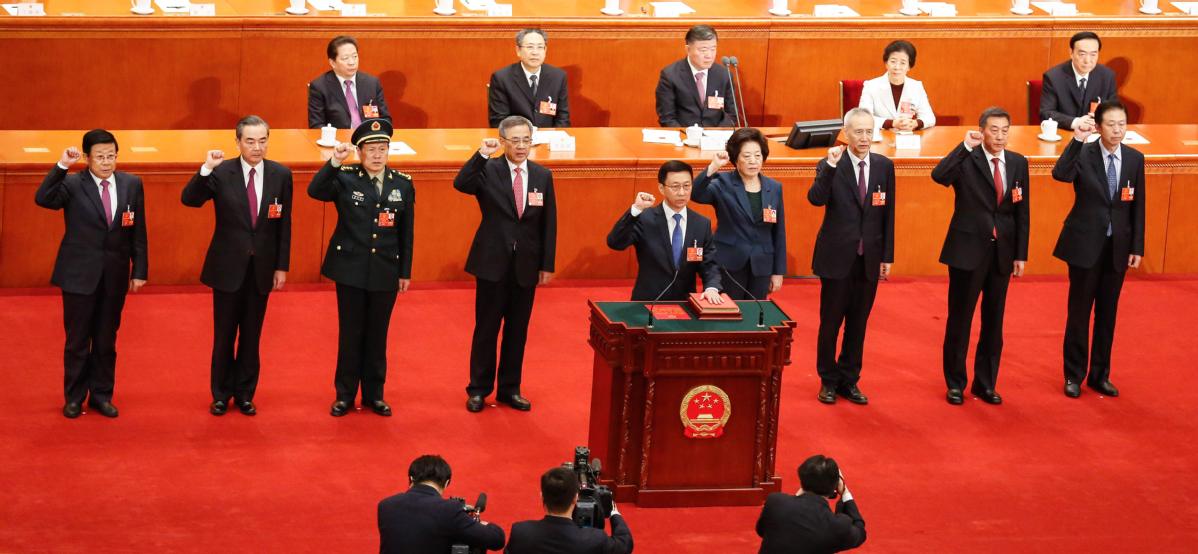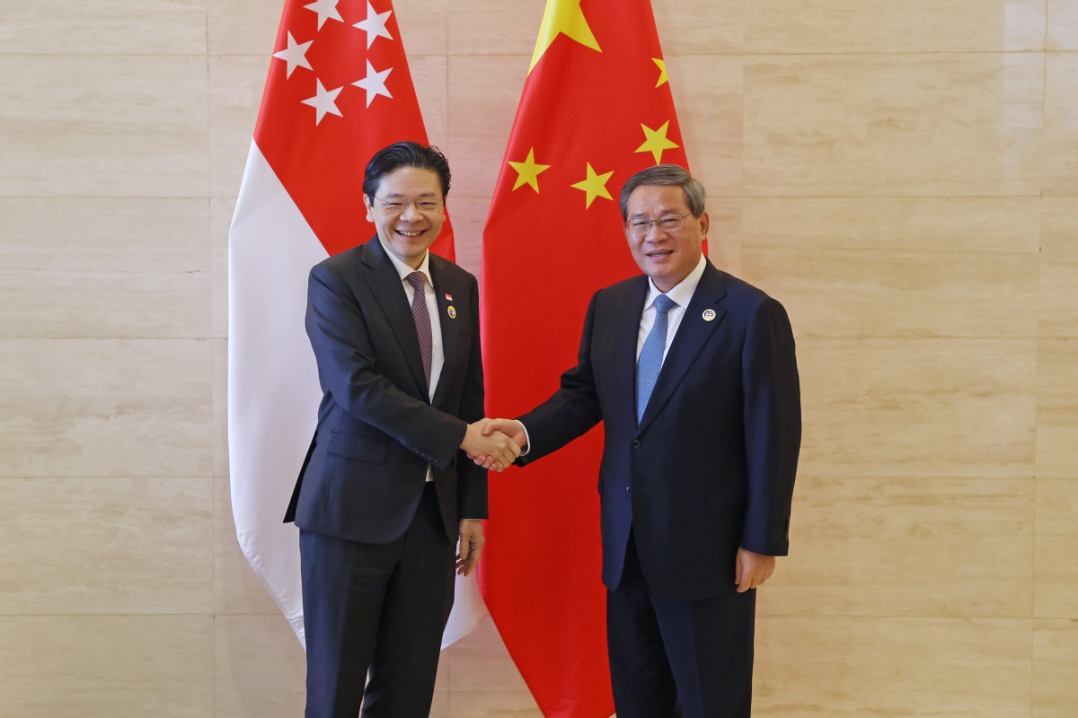NPC endorses State Council lineup


Talented, experienced officials also chosen as vice-premiers and for other roles, experts say
The 13th National People's Congress, China's national legislature, decided on the new lineup of the State Council at the seventh plenary meeting of its first session on Monday morning.
Nearly 3,000 NPC deputies voted to endorse vice-premiers, State councilors, the secretary-general of the State Council, ministers, the governor of the central bank and the auditor-general, who were nominated by Premier Li Keqiang.
Among them, Han Zheng, Sun Chunlan, Hu Chunhua and Liu He were endorsed as vice-premiers, while Wei Fenghe, Wang Yong, Wang Yi, Xiao Jie and Zhao Kezhi were endorsed as State councilors.
They were officially appointed when President Xi Jinping signed a presidential decree.
Han, born in 1954, joined the Communist Party of China in 1979. He served as Shanghai's mayor for nine years before becoming the municipality's Party secretary in 2012.
Sun was born in 1950 and joined the Party in 1973. She was head of the United Front Work Department of the Communist Party of China Central Committee from 2014 to 2017. Before that, she served as Party secretary in Tianjin municipality and in Fujian province.
Hu, born in 1963, joined the Party in 1983. He graduated from Peking University and worked for 19 years in the Tibet autonomous region. After that, he served as governor of Hebei province, Party secretary of the Inner Mongolia autonomous region and the Party secretary of Guangdong province.
Liu, born in 1952, joined the Party in 1976. Liu graduated from Renmin University of China. He is also director of the General Office of the Central Leading Group for Financial and Economic Affairs.
The vice-premiers have diverse academic backgrounds and political careers, said Li Junpeng, a public management professor at the Chinese Academy of Governance.
For example, Han has great experience in building pilot free trade zones, and Sun can help promote innovation and regional integration, Li Junpeng said.
Hu knows how to manage regions inhabited mostly by ethnic groups, build a world-class business environment and encourage public service after years working in Tibet and Guangdong, Li Junpeng said.
With strong expertise in financial and economic issues, Liu can help promote financial reforms and guard against systemic risks, he added.
The new vice-premiers have served in key posts, including Party secretaries in developed and less-developed regions, to accumulate experience in social and economic management, said Zhu Lijia, another public management professor at the Chinese Academy of Governance.
He said new vice-premiers will help the State Council, China's Cabinet, in social and economic management with their well-structured academic backgrounds and insights into overall national development.
Peng Shou, an NPC deputy from Anhui province, said he expects the new Cabinet members will bring thorough, concrete efforts to the restructuring of the State Council.
"I have been an NPC deputy for 10 years, and I think the State Council restructuring this year has been the most thorough," he said, adding that he has high hopes for the new Cabinet.
Zhu Ning, deputy director of the National Finance Research Institute of Tsinghua University, said he expects Vice-Premier Liu He to play an important role in financial regulation, especially in preventing and addressing financial risks.
"He is both an academic and an official, and was very well trained as an economist," said Zhu, who recently spoke to Liu and has known him for years. "He has been very sensitive about financial risks and fluctuation. He has also done a lot of field research on finance."
Zhu said in the past year, the Central Leading Group for Financial and Economic Affairs, where Liu serves as director of the General Office, has made tangible achievements in developing the real economy and promoting economic reform from the supply side against the backdrop of a changing world economy.
Zhu said Liu's working experience in the country's development planning commission may give him a better grasp of China's economic system and help him recommend proper steps in reform and economic upgrading.
Legislators also voted to approve the chairs, vice-chairs and members of eight special committees of the 13th NPC at the meeting.
All took the oath of allegiance to the Constitution.
Xinhua contributed to this story.
- Fire truck fall kills 5 in northwest China
- China reaffirms opposition to US arms sales to Taiwan
- China's political advisors urged to contribute to country's cultural advancement
- Silver-haired seniors take on university life
- Chinese vice-president attends friendship conference marking 70th anniversary of CPAFFC
- Chinese provinces launch joint campaign to protect migratory bird routes


































